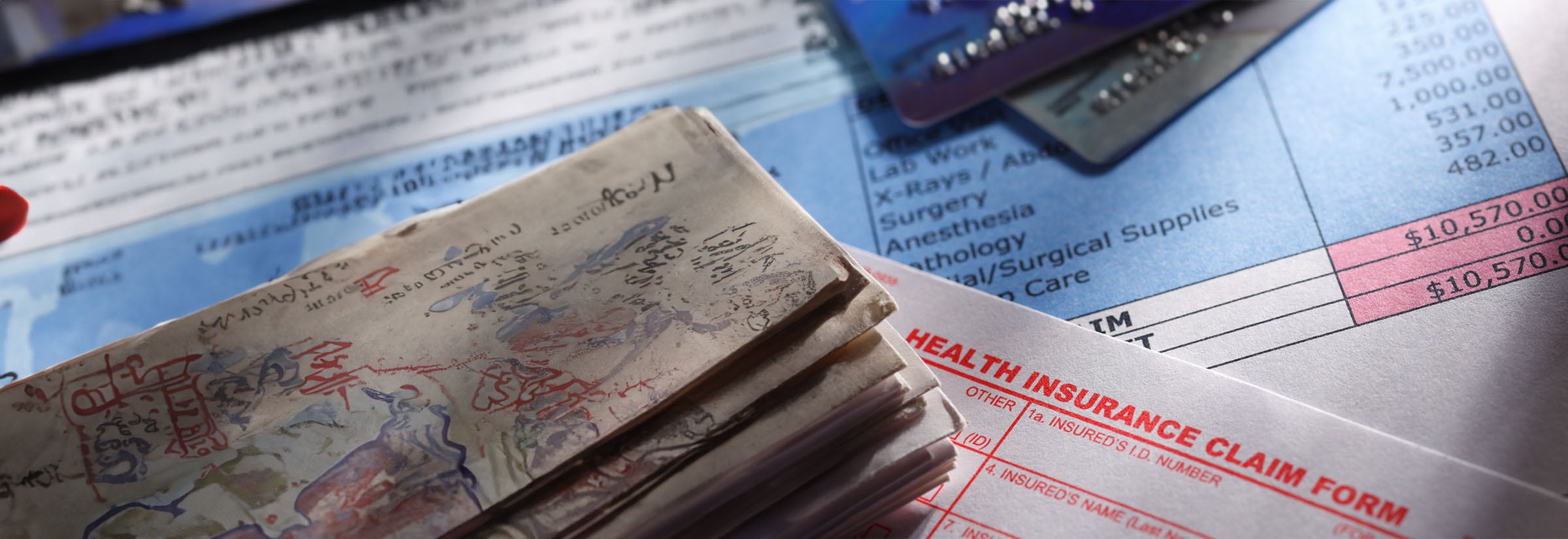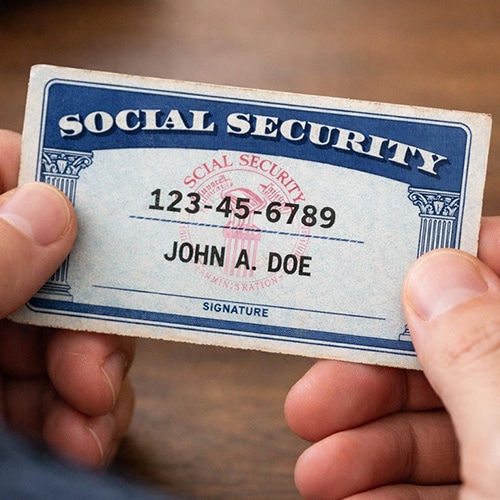Need to sign up for an insurance plan through the Affordable Care Act’s Health Insurance Marketplace? Now is the time: This year’s open enrollment period began Nov. 1 and runs through Dec. 15 for health insurance coverage that starts Jan. 1, 2024. This is also the time to renew or change a health insurance plan that you’ve previously signed up for through the ACA’s marketplace.
You’ll need to enroll if you don’t already have health insurance or if you are losing insurance that had previously been provided by your job.
But the open enrollment period is also a busy time for scammers. Con artists pose as insurance professionals or government employees to trick you into sending them money or giving them your personal or financial information.
And if you fall for one of these scams? The criminals behind them can use the personal information you give them to steal your identity, taking out loans or credit cards in your name, running up fraudulentpurchases on your credit cards, or using your bank account to buy electronics, clothing, toys, and smartphones online.
If you give these scammers money, maybe so that they can help you find a more affordable healthcare plan? They’ll disappear with your dollars and do nothing to help you reduce your healthcare costs.
Fortunately, you can avoid these scams by recognizing the signs of an open enrollment con. And once you identify scammers, all you have to do is hang up the phone or delete the texts and email messages that they send.
Scam 1: Calling to help you find the best insurance plan
You might get a phone call, text, or email from someone claiming to be working on behalf of Healthcare.gov, the website home of the Affordable Care Act’s Health Insurance Marketplace. These scammers say that they can help you find the cheapest insurance plan on the marketplace.
All you have to do is either send them money–often through a service such as Venmo or PayPal–or provide them with your personal information such as your Social Security number, address, and age. Some particularly bold scammers might even ask for your bank account information or credit card number.
If you do provide this information or send money? The Better Business Bureau says that these scammers will disappear. If you sent money, they might spend it, but they won’t help you find a cheaper insurance plan. If you give them your Social Security number or credit card number, they could use it to steal your identity, hack into your online credit card account–and then rack up fraudulent purchases–or take out loans and credit cards in your name. They might even sell your information on the Dark Web.
How to avoid this scam: The easiest way to avoid this scam? Hang up whenever anyone calls you saying they are working for Healthcare.gov. Delete any tests or emails sent from anyone saying the same thing. No one from the government will contact you to help you find a lower-cost insurance plan.
You can visit Healthcare.gov and request help from an assistor or agent/broker. But you must reach out for help first. Brokers or assistors won’t call you without you taking this step. Anyone who contacts you randomly and says that they are working for the Health Insurance Marketplace? They’re lying.
Scam 2: You need to update your information
In another common scam, con artists claiming to be working for the government will call, text, or email you claiming that they need updated information from you so that they can issue you a new insurance card or keep your policy active.
These scammers will request information such as your birthdate, address, and Social Security number. Again, if you provide this, the scammers could use it to take out loans or credit cards in your name or access your online credit card or bank accounts.
How to avoid this scam: It’s important to remember that no one from Healthcare.gov will call you to ask for your personal information. If someone does, hang up. And if someone sends you a text or email asking for the same information, delete it immediately.
If you are worried that your insurance provider has lost your information? Call that provider at its customer-service number and ask. Never take the word of someone calling you randomly.
Scam 3: Free health plans with spending allowances, too!
During open enrollment time, you might stumble upon social media ads promising you free American Care Act health plans that also come with annual spending allowances that consumers can use on everyday purchases, sometimes as high as $6,400.
That sounds good. But it’s too good: Such plans do not exist.
This scam is confusing, though, because there is a real Affordable Care Act subsidy that offers something like what these ads promise. But the subsidy doesn't give consumers cash that they can spend on everyday purchases.
If you are shopping the Affordable Care Act's healthcare marketplace, you might qualify for a premium tax credit based on your income. This credit lowers the monthly premiums that qualifying consumers pay. If the credit is large enough, consumers who qualify for it might not have to make a monthly payment to keep their insurance plan. But these consumers will never receive a spending allowance of any kind.
If you do see an ad promising both free ACA coverage and money that you can spend on everyday purchases, don’t click on it. The odds are high that the scammers running it will then ask you to provide them with your personal information. They might ask you to send money to sign up. When you do, the scammers disappear and leave you without any free insurance coverage.
Or the ad might simply be a way to trick you into buying insurance–but not, of course, the free plan with a spending allowance–from an unethical insurer.
How to avoid this scam: Only shop for plans at the Health Insurance Marketplace at healthcare.gov. That way, you know that you are viewing legitimate plans.
And never trust ads for plans that seem too good to be true. No one is going to give you free insurance with generous spending allowances.
Scam 4: Free health screenings
The free health screening scam isn’t limited to open enrollment periods, but you can bet that scammers will trot it out when people are considering enrolling in new healthcare plans.
In this scam, a company offers you a free health screening at a location near you. But, as the Better Business Bureau says, once you arrive at the testing center, the company asks you to fill out a form asking for personal information, including sensitive information such as your Social Security number, your Medicare number, or the policy number of your current health insurance plan.
Scammers might go through the motions of checking your health, such as taking your blood pressure. But they then might use your personal information to bill your insurance provider for medical tests and procedures for themselves. Others will use your information to steal your identity, while others might sell the information you provided on the Dark Web.
How to avoid this scam: The Better Business Bureau says that you should never trade personal information for free health tests. Legitimate health screenings–which are commonly offered by medical professionals, municipalities, and advocacy groups–will never require that you provide information such as your Social Security number. If someone at a free health screening does request this information? Walk away.
Editor’s note: Our articles provide educational information. LifeLock offerings may not cover or protect against every type of crime, fraud, or threat we write about.
Start your protection,
enroll in minutes.
LifeLock is part of Gen – a global company with a family of trusted brands.
Copyright © 2026 Gen Digital Inc. All rights reserved. Gen trademarks or registered trademarks are property of Gen Digital Inc. or its affiliates. Firefox is a trademark of Mozilla Foundation. Android, Google Chrome, Google Play and the Google Play logo are trademarks of Google, LLC. Mac, iPhone, iPad, Apple and the Apple logo are trademarks of Apple Inc., registered in the U.S. and other countries. App Store is a service mark of Apple Inc. Alexa and all related logos are trademarks of Amazon.com, Inc. or its affiliates. Microsoft and the Window logo are trademarks of Microsoft Corporation in the U.S. and other countries. The Android robot is reproduced or modified from work created and shared by Google and used according to terms described in the Creative Commons 3.0 Attribution License. Other names may be trademarks of their respective owners.




